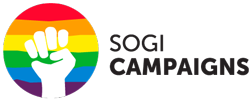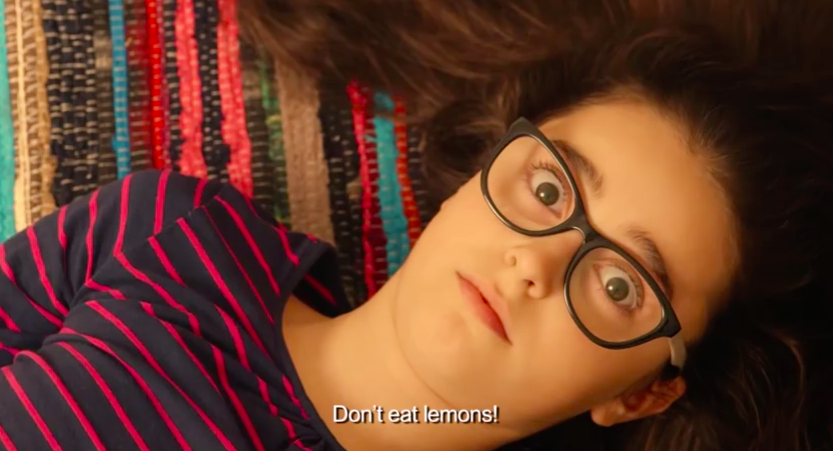In Lebanon, it takes patience, creativity and a good sense of communication to fight stereotypes and taboos on sexuality and gender. And that is just what MARSA health center has.
Diana Abou Abbas, Marsa’s Executive Director, shares insights
Diana, there are several great campaign videos on Marsa’s site. They make us want to hear more about the stories behind them
When the Health Center was founded in 2011, it was clear that Lebanese people needed information about condom use, but because the “promotion of sexual health” is very restricted it took us six long years to develop the video you can see today.
Over these years, we developed other campaigns on women’s health, which is an equally important topic here.
As for each campaign, we started by interviewing the people directly concerned with the issue to find out the specific challenges they were facing, the changes that were needed, the messages they wanted to convey, and the stories they were ready to share. In this case, we interviewed women all over Lebanon who told us how taboo it was to even look at their own vaginas. These testimonies were used as the script of the video. Even the closing statement “But society has total control over it” is a direct quote.
During this process, we also found that women were confronted with a whole lot of myths and secrecy about their periods. Prior to puberty young girls in particular are given virtually no information. We knew that we could only reach this target group by using an engaging and fun tone. So this is how we started working on this other campaign. Again, a series of focus groups told us about the myths people were hearing and helped us to develop positive and engaging messages we could convey to this audience.
Young girls are not an easy “target group” to reach in a highly patriarchal country like Lebanon. Did you have a particular strategy?
In fact, we relied on adult men and women to disseminate this information to the young girls in their families. It was screened and discussed on a TV talk show, which also helped in the outreach.
Let’s come back to the video on condom use. How did it eventually get made?
We knew we had to engage celebrities if we wanted to catch young people’s attention.
We managed to secure the support of a well known out gay singer who agreed to play the male role. For the female part (we insisted that there should also be a woman, to show that women should also have agency on this issue) we gained the support of a young actress, but this took a long time, as countless actresses flatly refused.
Again, we relied mainly on viral dissemination and we didn’t have a proactive strategy. The media picked up the campaign, which contributed to its success.
Campaigners often find it difficult to assess the impact of a campaign. How do you tackle this?
Direct assessment is relatively easy. Social media provide the quantitative data and monitoring the conversations will allow to get some qualitative insights. But what is also interesting is to see the effects over the longer term. Even quite a while after our campaigns ended, we saw initiatives emerging from other players who were clearly inspired by us. Sometimes we have seen some unexpected impacts: for example, the video on periods was also promoted by groups opposing child marriage. The video showing a girl who has her periods and who continues to live as a child was exactly the message they needed.
You also developed a campaign on Gender Identity
The lack of information on Gender Identity in Lebanon is huge, so we assumed that we should start from scratch. The idea behind the campaign was to create an information video using very simple language and in colloquial Lebanese, not classical Arabic, so we could reach more people.
We were incredibly lucky to secure the collaboration of Lebanon’s most famous female voiceover artist. This woman does all the major voiceovers in the country so everyone knows her voice. Having this very familiar voice on a very unfamiliar subject was a huge asset.
It was interesting to note that when the video went online, the conversations around it were totally organic. I mean that it was not the organisation MARSA which had to do the facilitation. Even the monitoring of negative or insensitive comments was done by users who were not connected to the movement: the fact that the video was extremely informative and simple gave people the confidence to take stands on the issue, clarify misconceptions, use the right language, etc.
It’s very important to think about the “stickiness” of a campaign, which is the ability for the target audience to absorb, take ownership, and pass on the message.
So what lessons would you like to share with others?
First, that each campaign has to carefully target a specific audience, and that this audience needs to be thoroughly researched. Focus groups will provide you with information about their needs, what they want to say, and the challenges they face. This information should be at the core of your campaign.
And sometimes you have to go below the surface. For example, on Transphobia, we also had to investigate Transphobia within the LGB communities.
The resulting lesson is that messages need to be adapted to your audience and in order to get this right, you have to carefully test your message. For example, we systematically send the early drafts of video scripts to experts on the issue and collect their feedback.
The last important point I want to make is that organisations which are developing campaigns have to take time to learn from others, look at examples from colleagues especially those located in the same country or in a similar context, go and meet them, and discuss ideas. We often don’t tap enough into existing resources.
So could organisations take you at your word and come and consult you?
Absolutely, it would be a pleasure!

